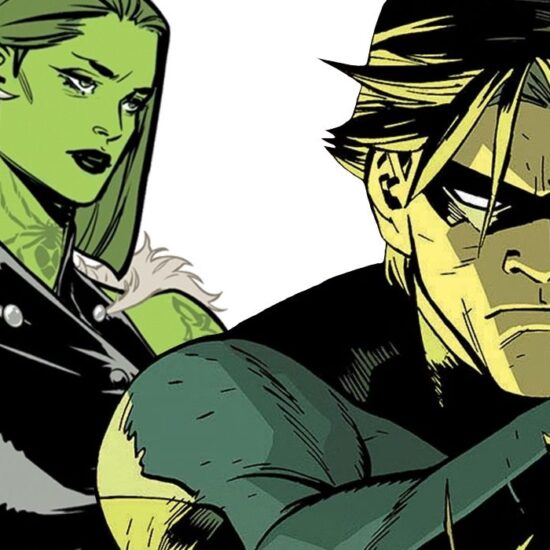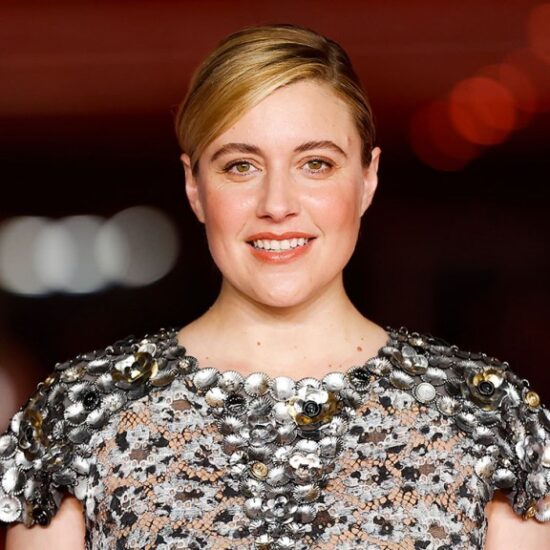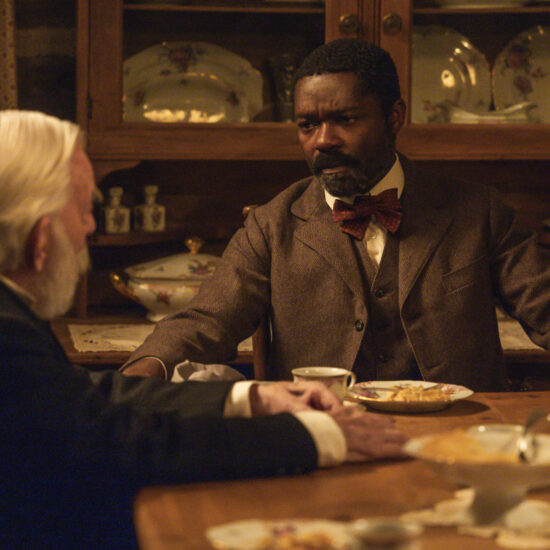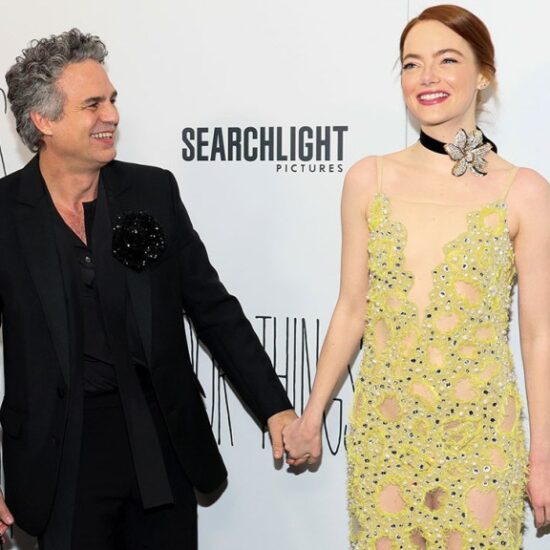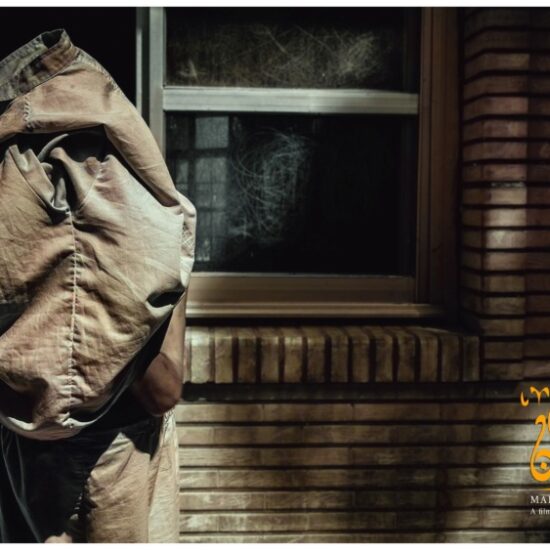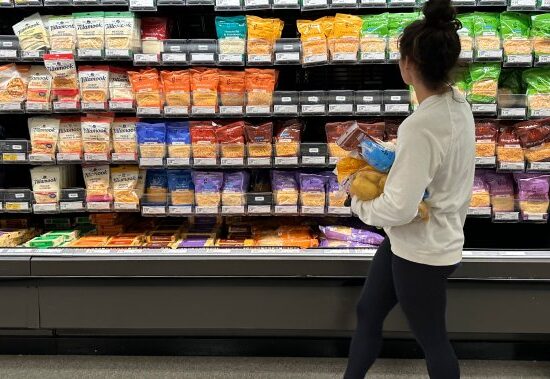
SPOILER ALERT: This interview contains spoilers from Episode 6 of “The Last of Us,” now streaming on HBO Max.
HBO’s “The Last of Us” series just took a major leap to the video game’s sequel, “The Last of Us: Part II,” that fans are sure to recognize: The snowy Jackson, Wyoming, settlement where “Part II” begins was faithfully recreated in Episode 6 — despite not appearing in the original game.
It’s the first major connection to “Part II” that the show has made. Without spoiling the events of the sequel, the wintery Jackson town is a major location in the opening hours of the game. In the original “The Last of Us,” players learn about Jackson from Tommy (Gabriel Luna) and Maria (Rutina Wesley), but they mainly stay at the hydroelectric dam encampment and see Jackson only at a distance. The section of the game also takes place during the fall, not the winter.
HBO has already renewed “The Last of Us” for Season 2, which seems like a perfect opportunity to return to this established Jackson set for the sequel’s story. This version of Jackson, however, was actually created in Canmore, a small town 50 miles west of Calgary, in Alberta, Canada, where much of “The Last of Us” was filmed.
Filmmaker Jasmila Žbanić, born in Sarajevo, Bosnia, made her TV directorial debut with Episode 6, titled “Kin.” Her most recent film, “Quo Vadis, Aida?,” was nominated for best international feature at the 2021 Academy Awards. It dramatized the harrowing events of the Srebrenica massacre in 1995, when more than 8,000 Bosnian men were killed during the Bosnian War of the 1990s. Žbanić’s experience surviving the Siege of Sarajevo during the war influenced how she directed the episode, in which Joel (Pedro Pascal) is reunited with his brother Tommy in the burgeoning Jackson settlement.
“There was no electricity, no food, nothing. But we managed to survive because of solidarity and the way the city was restructured. You have to start from zero. That experience for me was something that I felt very close about Jackson,” Žbanić said, adding that “The Last of Us” creators Neil Druckmann and Craig Mazin were interested in her background as it related to the episode.
With Variety, Žbanić discussed the below-freezing temperatures in Canmore, filming the highly emotional reunion between Joel and Tommy and why working with the animal handlers on set was “heaven.”
HBO
How familiar with the video game were you? Did you watch videos of “The Last of Us: Part II” to understand what Jackson looked like?
When I got the job, I didn’t know anything about the game, so I had to really educate myself with what it is. I bought the game and I tried to play it, and then I watched a lot of YouTube videos of people playing it. I was watching the part that concerns my episode a million times. I was talking a lot with Neil about all the atmosphere of the city and what he had in mind, and what is also not there. There are some elements that Craig added to the whole piece. I was also talking to a lot of gamers. I always ask, “What do they want to see? What do you expect from the game?” They would be saying to keep these emotions and atmosphere. These two things were like a checklist for me. I would check with each scene that they’re there.
Did you talk with creators Druckmann and Mazin about why they wanted to incorporate Jackson from “Part II” into this episode?
I didn’t really talk about it, because for me it was very natural. What we talked a lot about was that I survived the war in Sarajevo in the ’90s. I think for Craig and Neil, it was interesting that I was kind of living in a place which was like Jackson in a way, because we were surrounded by the Serbian army, we were constantly bombarded. We had to be on alert, we had to survive, we had to learn how to live without anything, without civilization. There was no electricity, no food, nothing. But we managed to survive because of solidarity, and the way the city was restructured. You have to start from zero. That experience for me was something that I felt very close about Jackson. It’s a community that functions, and I find it really beautiful and hopeful because I really believe even in the worst catastrophes, like war, I survived. People are able to keep the society. They are not always the enemy to each other. So I was really happy to direct this episode that really said something that I deeply believe in.
The reunion between Joel and Tommy was so sweet, but their relationship turns very rocky. What direction did you give them to portray this up-and-down, brotherly relationship?
We were very lucky because we had the opportunity to have rehearsals before we were on the set. The set was quite difficult because of the cold weather. Sometimes it was even -15 degrees Celsius, so very, very cold. That scene with Tommy and Joel was especially taken care of. They would be reading it, act, repeat and trying different stuff. They also suggested some changes, so it was very deep for both of them in each scene. It was so beautiful, because it’s a very long scene in the shoe shop. It’s a very emotional scene for Pedro. I was filming him as a second; first we filmed Gabriel, and then I noticed that each time we repeated, Pedro was crying. He was not on camera, but he was crying because he was giving his partner everything so that he can act. This is very special. It’s so generous of an actor to do this so deep. I was amazed by Pedro’s talent.
How did the “I sure as hell ain’t your dad” scene between Pedro and Bella go?
It was so emotional. Sometimes I would be crying behind the camera because they were so truthful and beautiful. This relationship is so touching. I really like that it’s changing from the beginning to the end. It’s just one episode, but it has so many changes of their relationship, which is really great.

HBO
There’s the flashback to Joel and Sarah putting up Christmas ornaments, which wasn’t in the original game. Where did that scene come from?
I think the moment came out after Craig and I talked about certain things, how Joel is always trying not to connect his emotions toward Ellie with emotions that he has for Sarah because he buried those. It’s really hard for him when they come up. Ellie is just bringing everything out. Because of this kind of Christmas atmosphere in Jackson, songs that he hears, all the lights and feeling of normality, he’s not able to keep it in anymore. It’s out. That’s where he starts connecting, “OK, these emotions are real, and it is for her.”
With the freezing temperatures and all the animals, were there any obstacles that came up in shooting?
Look, I’m coming from Bosnia, from a very crazy film industry. We make one film per year. So we don’t have amazing professionals like America has. So for me, nothing was a challenge, but a gift. For example, I would talk to people who were dog trainers and they would tell me, “Make a script of what you want our dog to do.” I would say, “One leg up, this face, how much the dog should open its mouth.” Everything. Then they would come with that and the dog would know it exactly. I was joking that in Bosnia it wouldn’t be possible. You would have a dog, and if the dog is angry, it’s angry. There is nothing like that. For me, all of this was not a challenge, but a total pleasure to work with such professionals. The people dealing with horses were amazing. You just tell them, “I want the first horse one meter away from the second, then three of them.” They would do it and keep it all the way through the scene. For me, it was just heaven to work this way.
In the game, Joel falls off a balcony and gets impaled on a piece of metal, but in this episode he gets stabbed. Why was that changed?
I got it in the script, and I really liked it because it was more subtle. Ellie thinks they made it, and then it’s a shock. Otherwise it would be immediately over. I really liked how Craig wrote it. They travel, she’s hopeful, they go on together — and then it’s a shock.
And the other major change is that Tommy and Maria are expecting a child. How do you think that will end up for them in the apocalypse?
We wanted to give this feeling of hope that this society has. Life doesn’t stop. It always goes on; even in the worst circumstances, life goes on. For me, this is a really important touch that Maria is pregnant. It makes Tommy’s decision much, much heavier that he accepted to take Ellie. It makes everything hard, with more drama for Tommy.
This interview has been edited and condensed.









